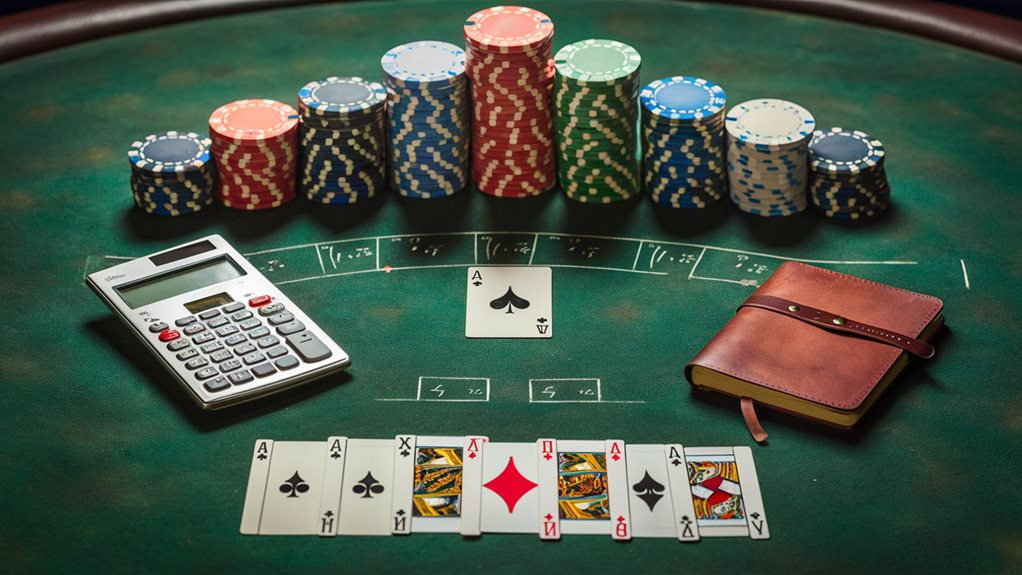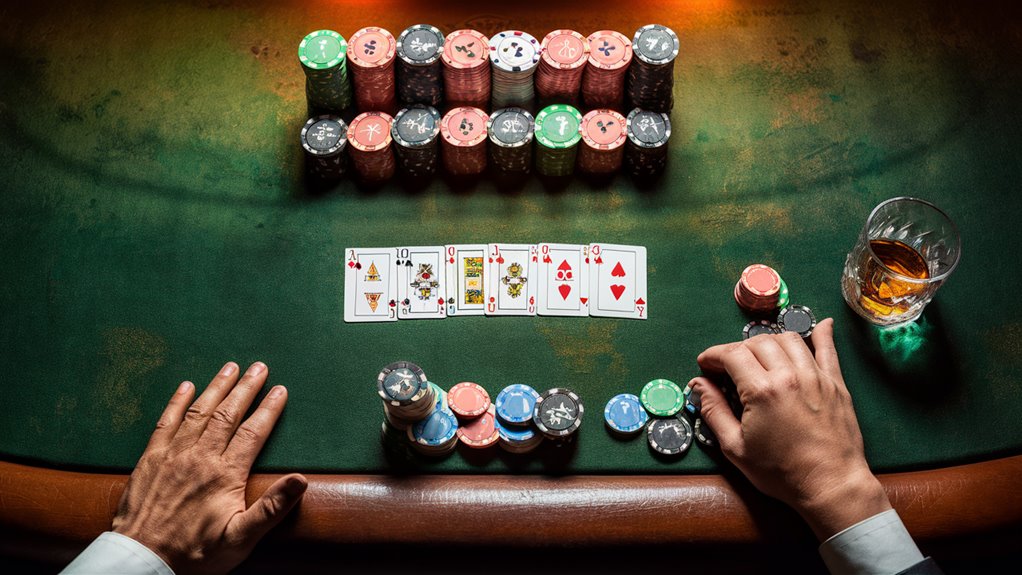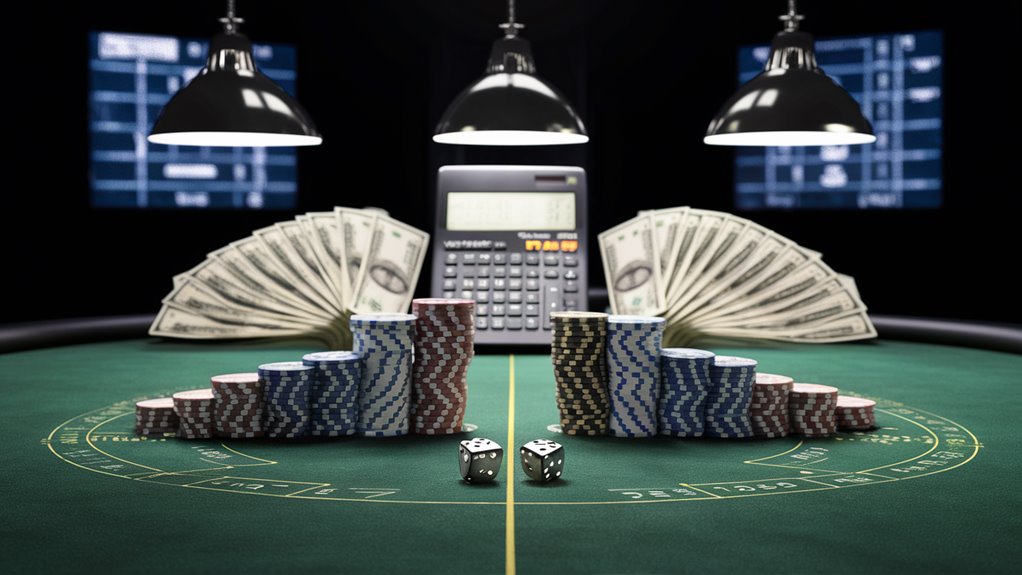The Simple Guide to Poker: Key Money Handling Tips

How to Manage Money Well for Lasting Poker Success
Good money habits are key to winning at poker over time. Expert players have fixed rules like keeping 20-30 times the game buy-in for cash games and at least 100 times for tournaments. This careful plan helps them play longer and risk less. 공식 인증업체 목록
Smart Risk Steps and Knowing When to Play
Handling money wisely means not risking more than 5% of your total poker money in one game. Use ways to track play and set clear limits on what you can lose each time. Keep your poker money separate from other money to stay smart about your finances.
Using Math to Win More
Knowing your place and figuring out odds (EV) base good game choices. Knowing the odds and using your position helps you use math to your benefit and dodge tight spots.
Handling Emotions in Poker
Top-notch poker needs great emotional hold. Players must stop tilt, stay calm through losses, and choose based on facts, not feelings. This mental control stops big and costly errors.
How to Build a Good Poker Wealth
Winning at poker means sticking to these main principles: careful money rules, smart play based on position, and making choices with discipline. Whether you’re at cash games or tournaments, these rules make the difference between steady wins and going broke. Master these to create a lasting poker career with a math edge and controlled risks.
Basics of Poker Money Rules
Main Money Rules
Good money habits are needed for lasting poker wins.
A strong money base needs 20-30 buy-ins for cash games and 100 buy-ins for tournaments to handle ups and downs well.
At $1/$2 cash games with a $200 buy-in, you should have at least $4,000-$6,000.
Steps to Limit Risk
Tracking play and setting risk limits are main parts of handling your poker money well.
Never put more than 5% of your total poker money on the line in one game.
Moving to lower stakes during losses shows smart control and helps keep your money safe.
Pros always protect their money by sticking to these key rules.
Better Money Strategies
Improving your money strategy means adjusting it based on various factors:
- Your win rate
- Your skill level
- How much risk you can tolerate
- How to handle highs and lows
- Keep poker money separate from living money
Treat your poker money as your business money.
Even the best players have bad times, so handling your money right is key for long-term winning.
Solid money handling turns poker from a gamble to an investment, letting skilled players profit from smart play over time.
Getting Good at Poker: Balancing Risk and Reward

Understanding Key Betting Numbers
Pot odds, implied odds, and expected value (EV) form the basis for good poker choices. Smart players use these numbers to make bets based on math, not just gut feelings.
Work Out Pot Odds
Pot odds show you the value you get from a bet.
To figure out pot odds, compare how much you need to bet against how much is in the pot. For example, putting $20 in a $100 pot gives you 5:1 pot odds.
If your chance to win is better than the pot odds, your bet is mathematically sound.
Using Future Bets to Advantage
Implied odds look beyond simple pot odds by thinking about future bets.
When you might draw a flush or a straight, it’s important to think carefully about implied odds.
Good players weigh both the current pot odds and possible future gains when deciding to keep going in a hand.
Making the Most of Expected Value
Expected value (EV) checks how profitable a play will be over time by adding up all possible outcomes.
If EV is positive, it means a play should pay off in the long run. Avoid plays with a negative EV. Smart players focus on EV-based choices to better their long-term gains.
Setting Firm Money Rules
Important Poker Money Rules: Setting and Keeping Them
Key Money Boundaries
Handling your poker money well is the base of good poker play, and needs three important money limits: total money, single game limit, and stop-loss limit. Explained Simply
These set limits act like safety nets for your poker life.
Your Basic Money Rules
Total Money Rules
Your total poker money should be extra cash that doesn’t affect your living costs.
Keep at least 20 buy-ins for cash games or 40 for tournaments at whatever level you play most.



